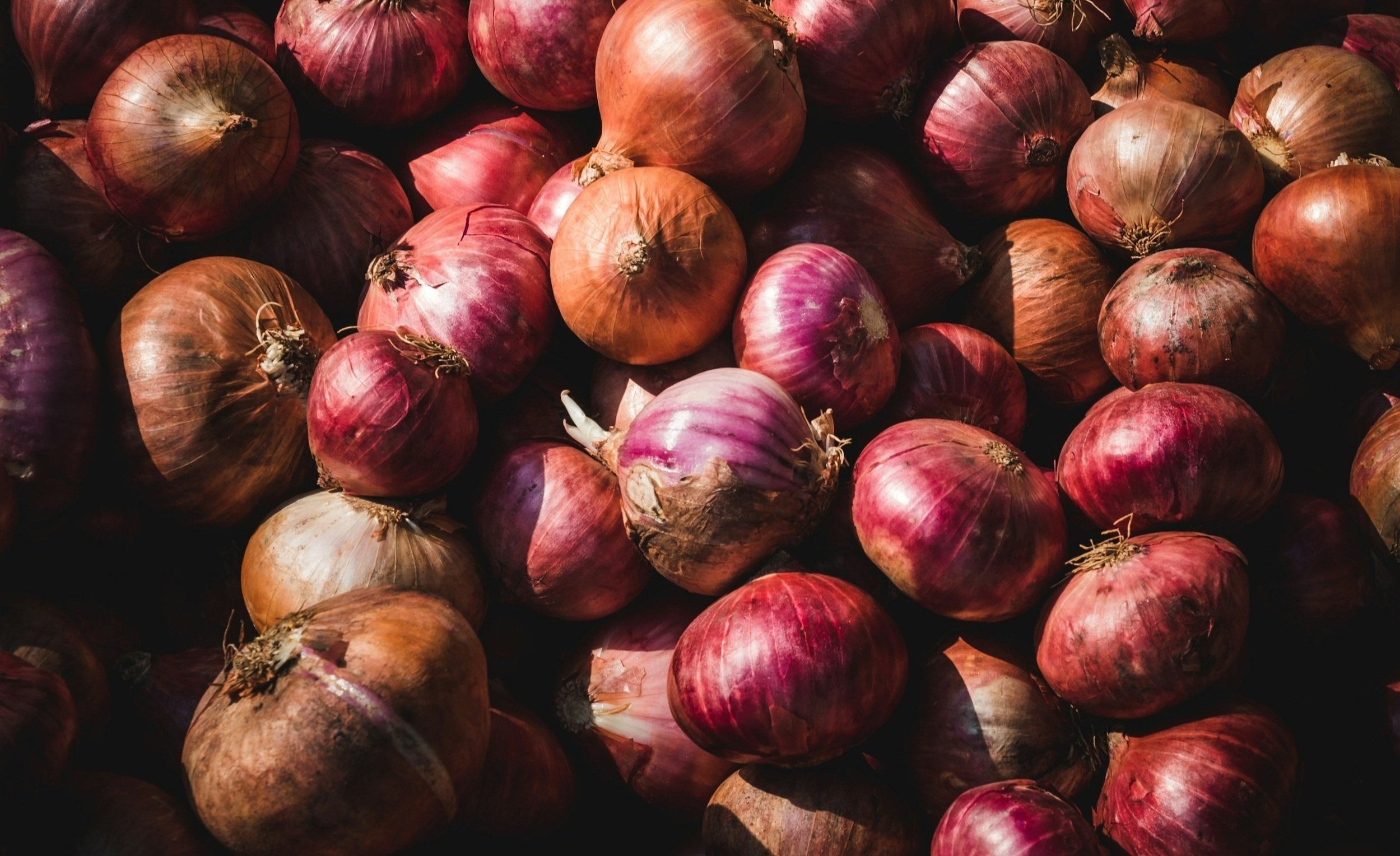
FACT FILE: ONIONS
You can find some form of onion in just about any dish, but how much do you know about this staple vegetable? Read on for information about its health benefits, key phytonutrients, and suggestions for cooking, usage and storage.
-
Onions are a staple vegetable, purchased and consumed regularly by most Australian households, and used in a wide range of recipes.
Onions are a bulb formed from the base of the leaves, which form concentric rings of moist inner leaf bases, surround by tougher, dry outer leaves (skin).
Onions are in the Allium family: They are closely related to garlic, leeks, spring onions, eschallots/shallots.
Onions score highly for both flavour and health. Onions can be white, brown, pink/red or yellow.
-
Flavour in the onion family develops with chopping, which starts a series of reactions that produce gaseous sulphur compounds giving odour, flavour and making you cry.
Chop onions early in the preparation phase, then cover and set aside for a few minutes to enhance the flavour.
Raw onions have a totally different flavour to cooked onions, in which many of the volatile gaseous flavours have been lost, and the sugars have caramelised.
-
For best results, store onions in a cool, dark place (not in the refrigerator), and away from potatoes (as storing both together makes them both spoil faster.
To get the most Vitamin C from your onions, add diced or sliced raw onion to salads, sandwiches and burgers, as cooking depletes Vitamin C quite rapidly.
Cooking (frying) onions for a long time, so-called “caramelisation”, enhances the sweetness of the onions, and makes the fibres and carbohydrates very available, but will reduce the Vitamin C content significantly.
We recommend stir-frying, baking (whole) and BBQing, i.e. cooking without water.
As onions are not brightly coloured, have a sweet taste when cooked, and contribute flavour to cooked dishes, they are a great way to add vegetable serves without fussy eaters noticing. Double up your onions to increase your vegetable intake invisibly.
If cutting onions makes you cry too much, you can try one or more of the following:
Act quickly – the faster they are sliced, diced and put in your cooking (and the knife and cutting board and your fingers washed, the better)
Refrigerate the onion for an hour or 2 just prior to slicing.
Use a very sharp knife.
Cut into large chunks.
-
One serve of onions is 75g, which is about half a medium-sized onion (1/2 a cup diced onion). This provides:
A source* of Vitamin C (Ascorbic acid).
*A source means one serve provides at least 10% of the Recommended Daily Intake, or at least 2g in the case of fibre.
As a source Vitamin C, one serve (75g) of onions contributes to:
A healthy brain and nervous system.
Energy and normal metabolism.
Healthy bones and joints.
A Healthy heart and circulation.
Healthy immune system.
Healthy skin.
Healthy digestion.
Good hydration
For more information check out www.veggycation.com.au.
-
Onions contain about 5% of their fresh weight as carbohydrates, mostly sugars, plus 2% fibre.
Two of the special carbohydrates in onions are fructans and inulin, both of which feed your good gut bacteria and may contribute to healthy digestion.
Some people with specific gut issues (“FODMAP” issues) may find eating onions causes pain and discomfort, although onions and other Alliums are a major contributor to having a good gut microbiome.
Onions also contain water-soluble phenolics – especially quercetin; Red/purple fleshed onions also contain anthocyanins (which make blueberries blue). Both quercetin and anthocyanins may have antioxidant activity, and research is ongoing on other health benefits.
Onions also contain complex sulphur compounds, which undertake rapid change when onions are peeled and cut, producing the flavour changes, and the so-called “lachrymatory factor” which can make you cry! These sulphur compounds are also biologically active, and are best consumed in raw onions. Many onion flavour compounds are also linked with various health attributes found in scientific studies to positively impact heart health and cancer, among other things.
